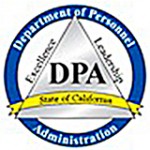Expert Interview – Sujay Nair, Lecturer-Enterprise Performance Management, The University of Melbourne, Australia
 For the report Performance Management in 2012, The KPI Institute conducted 12 semi-structured interviews with practitioners, academics and consultants, who offered a detailed image on the state of Performance Management as a discipline.
For the report Performance Management in 2012, The KPI Institute conducted 12 semi-structured interviews with practitioners, academics and consultants, who offered a detailed image on the state of Performance Management as a discipline.
Sujay Nair, Lecturer-Enterprise Performance Management at The University of Melbourne, Australia was one of the academics that The KPI Institute interviewed.
1. What does the term Performance Management mean to you?
It is a very broad term. To me, I would say Performance Management is comprised of a collection of principles, tool and techniques to help an organization achieve its objectives.
2. What drives interest in Performance Management?
The reason why there is a strong interest in Performance Management is because of its strong links to the organization’s ability to achieve its objectives. Organisations use the principles, tools and techniques of Performance Management to ensure that the purposes of its existence are fulfilled…
3. What are your thoughts on the relationship between performance management at organizational, departmental and individual level?
In an ideal environment, a high performing individual should lead to a high performing department. And a high performing department should lead to a high performing organization. There should be a very strong link. In reality it sometimes doesn’t happen in that way because of leakages. I think the most common leakage is because the objectives of each of these components are not aligned. So even though a person is doing his job and achieving his or her performance objectives, it does not translate into the department achieving its goals and objectives because they are not consistent, and so on and so forth. The other source of leakage in addition to the misaligned objectives is the lack of leadership capabilities. So although a person is really doing well in his job, the leadership at the department and/or organisation level is not able to translate a good performance at the individual level to good performance at the departmental and /or organisation level.
4. What are the 2012 key trends in Performance Management from the perspective of your knowledge and experience in this field?
One of the trends is the broadening of performance considerations to beyond just from the shareholders’ perspective. So when one looks at how an organisation is performing, one are not just confining oneself to the shareholders, but also asking the question on how it is performing in the eyes of the employees, local communities, global communities and so on and so forth. So I think this is one important trend.
Another trend would be the recognition of the behavioral elements and human biases in performance management. So although we have certain tools or techniques that in theory should work in a certain way, but because human beings are not always rational and subject to biases, the actual results could be different. These behavioral aspects which affect the way people act in the real world may cause one to reconsider some of the performance management principles and/or tools that are used.
5. What aspects of performance management should be explored more through research?
Going back to what I mentioned about the first trend in 2012, relating to that is we need more research on what is the right way to measure performance in a broader sense. So instead of just measuring shareholders’ returns that we have a lot of theory and experience in doing it, how does one measure ‘returns’ to the employees, local communities, global communities?
Another interesting topic that would potentially benefit from more research is whether the principles, tools and techniques that we have in performance management need to be modified for the new generation that has recently joined the workforce, Generation Y. The hypothesis is that Generation Y has very different needs and wants compare to Generation X and also the baby boomers. Therefore there could be a need to modify the principles, tools and techniques we have been using to manage performance.
6. Please provide some examples of organizations which you would recommend for study due to their approach to performance management and achievements?
I think companies that have performed well recently like Google and Facebook are interesting to study. In addition, companies that have performed continuously well and managed to sustain that performance level over a long period of time like IBM and GE would also be interesting. On the other hand, underperforming companies like Nokia and Kodak are also interesting to study to highlight paths that management should avoid. Having said this, it is quite likely that many, if not all of these organizations have already been studied by researchers and academics.
7. Which are the main challenges of Performance Management in practice today?
The challenge is to encourage management to adopt a broader perspective on performance beyond just short term financial results and to include the perspectives of other stakeholders in their consideration what is good performance. For those organisations that have already realized this, the challenge would be to ensure that this underlying principle is reflected throughout the organization in terms of its culture, its structure, and processes is one of the challenges faced by organizations today.
8. What do you think should be improved in the use of performance management tools and processes?
One area that we can do better is the way the performance management tools are used. For example, in the case of individual performance, based on my observations, I believe that the quality of the discussion that happens during performance evaluation dialogues can be improved. Does the supervisor commit enough time to have a thorough discussion? Does the supervisor ask the tough questions when performance is below expectations? Does the supervisor get to the root cause of the underperformance? Does the supervisor give the evaluee concrete steps on how they can improve their performance going forward? Does the supervisor provide informal feedback frequently, and not just once or twice per year – to give the evaluee opportunity to improve his/her performance and ensure there are no surprises when formal performance ratings are handed out.
9. What would you consider best practice in performance management?
I know of an organization that has a very robust individual performance evaluation approach. In this organization, it was not uncommon to have informal monthly performance on conversations between the individual and his/her supervisor. However formal evaluation took place every six months. So these frequent informal discussions around performance ensures there are no surprises when it came to the bi-annual formal evaluation. The supervisors spent significant amount of time doing these performance evaluation, which in turn sent a signal that it was a very important thing to get right and added credibility to the process. As part of the formal evaluation process, supervisor typically spoke to between 8 and 15 different people who worked with the evaluee to get a sense on how he/she is performing. Once the performance is calibrated across a similar cohort of evaluees, the supervisor will then have the formal performance dialogue with the evaluee. This dialogue will cover both the strengths and developmental areas for the evaluee. Evaluees were encouraged to find ways to leverage on their strengths as making full use of these “spikes” would be crucial in succeeding in this organization. Time was also spent talking about the developmental areas of the evaluee and the steps he/she could take, with the supervisor’s support, to improve in these areas. The supervisor had to ensure that these developmental areas were made known to the evaluee in no uncertain terms, but at the same time were not over emphasized, at the expense of his/her strengths.
10. Which aspects of performance management should be emphasized during educational programs?
Going back to the definition of performance management, I suppose that educational programs should focus on the most important principles, tools and techniques that are currently used. So it would be important to cover these in the class. In addition, real life examples of how organizations use these principles, tools and techniques should also be highlighted in class.
11. What are the barriers to achieving higher levels of proficiency in performance management among practitioners?
I think one of the most important barriers is the overemphasis by capital markets on short term financial results. The pressure for companies to announce quarterly earnings and guidance, and the level of emphasis analysts place on these announcements encourage the companies to think short term to the detriment of its longer term objectives and performance.
12. What Performance Management question would you like to have answered?
I think this is similar to what was asked before in question 5 – therefore my answers here would be the same.
13. We are developing a database of performance management subjects and degrees in performance management. What are your suggestions relevant to the database (i.e. subjects or degrees such as the Masters in Managing Organizational Performance)?
I presume the database would include the name of the organization offering these courses, the type of subjects or the course being offered (masters vs diploma etc.), how long it would take, the costs involved, the topics that would be covered and so on and so forth. It would also be good to have the following 2 pieces of information (if not already covered in the database). First, a fairly detailed profile of the academic / lecturer involved in delivering the subject; and second, the profile of students who would be in the class. I think these 2 pieces of information will be important determinants of quality of the program.

Tags: Performance in Australia, Performance Management, Performance Management in 2012





